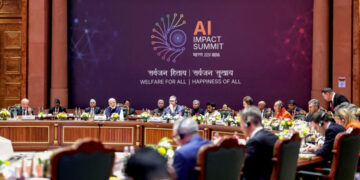By: Dr. Urfan Ahmad
It is an established historical fact that Arabs before the advent of Islam did not think much of their womenfolk. They were treated as mere chattels, and it was considered quite normal for a son to inherit the wives of his father, other than his own mother, as a part of the estate, and take them as his own spouse if they preferred. The abhorrent practice of burying daughters alive was rampant in the tribe of Banu Tamim, and it gradually spread into other tribes. History is fraught with incidents when sympathetic mothers somehow managed to hideaway their new born female babies, announcing to the father that the child had died. The Holy Quran gives a graphic illustration of how women were viewed then. “And when a daughter is announced to one of them, his face becomes black and he is full of wrath. He hides himself from the people because of the evil of that which is announced to him. Shell he keep it with disgrace or bury it (alive) in the dust? Now surely evil is what they judge” (Ch: 16: 58, 59)
The holy Quran reminded the women that they had a right to live. A women in all her three major roles as a daughter, a wife and a mother enjoyed neither any respect nor any right- looked down upon as mere subjects of sexual desire and lust, women were encouraged to become the standard bearers of vice and moral degradation. Women of lose character were praised, and were asked to display a standard or a flag near the house which would identify them as whores. With the passage of time, women seemed to have accepted the humiliation and spite without any protest.
Islam views a woman as a human being in no way inferior to a man. The Almighty says in Holy Quran: “They (women) are an apparel for you and you are an apparel for them.” (Ch: 2: 187) It is a form of embellishment and adornment. This is why Ulema, in their exegesis of Quran, have lend an extra meaning to this verse. A woman is an adornment to a man just as a man is an adornment to a woman. Allah has assigned duties to both, man and woman and has promised an equal reward to them. In Islam the virtues of a man are the same as that of a woman and this indeed is a very important point. As commonly held, Islam is not a religion of man. From this we find that Allah has equal expectations from his creatures, regardless of whether they are men or women. And such an expectation from Almighty asked that both are capable of executing their duties with excellence. If a woman, according to Islam, can be virtuous, God fearing, chaste and an earnest worshipper and believer, it followed that she can be a very important member of human kind.
In a Patriarchal society as envisaged by Islam, men and women are beautiful manifestations of divine qualities, some of them shared commonly between them and some singular to each. They are supplementary to their own role to play individually and jointly. Almighty has created a bond of love, affection and sympathy between them which when promoted legitimately, forms the foundation of human family, fraternity and society. In Islam she is a beloved daughter, a respectable beloved wife and a revered mother. In all these three major roles, she has her rights and duties.
While Arabs in pre-Islamic days were ashamed of their daughters, and brutally burying them alive, the Prophet (s.a.w) displayed a totally different behaviour towards his own daughter Fatima (a.s) as history tells us that whenever Fatima (a.s) appeared, the Prophet (s.a.w) would stand up and allow her to sit in his own place. The Arabs observed this behaviour and very well understood that it was not a mere demonstration of paternal affection. To rise and allow one’s own daughter to take one’s seat was a demonstration of love with respect. The Prophet (s.a.w) by his conduct proved that a daughter was just as dear as a son- a gift from Allah to be loved and admired. The prophet (s.a.w) elevated her status to that of his mother and by so doing conveyed implicitly that a daughter is as respectable as a mother. So the Prophet (s.a.w) gave a name to her “Ummu Abeeha.”
A woman herself feels secure when in company of a man. If she is a wife, her husband is her protection. She likes her consort to be a person of courage and valour, just as he likes to see his spouse tender and loving. These things are natural. In Quran a married woman is “Mohsanah,” one who is protected or is in a fortress. And in Islamic laws, this implies a wife’s unblemished character or reputation. There is no room for an assertion from a wife that she would go her way, regardless of her husband. Islam calls this so-called independence as injurious to a healthy family life. Nor is there connivance at man’s irresponsibility. Islam deplores both, and sets rules to regulate the behaviour of both. In Islam, there is no permission, no promiscuity. It is for this reason that a Muslim wife would not leave the house without her husband’s explicit or implicit pleasure and permission or at least without his full knowledge.
Perhaps, the best role in a women’s life is that of a mother. Islam views a mother with that love, affection and respect, which is little short of absolute submission and reverence. The Prophet (s.a.w) “Paradise lies under the feet of the mother.” Woman as a mother reaches the pinnacle of her role and becomes an ideal for all her children and how great is the assertion that we are what our mothers made of us. Man- and by this I mean a male member of the human kind, is so very much indebted to a woman-his mother.








